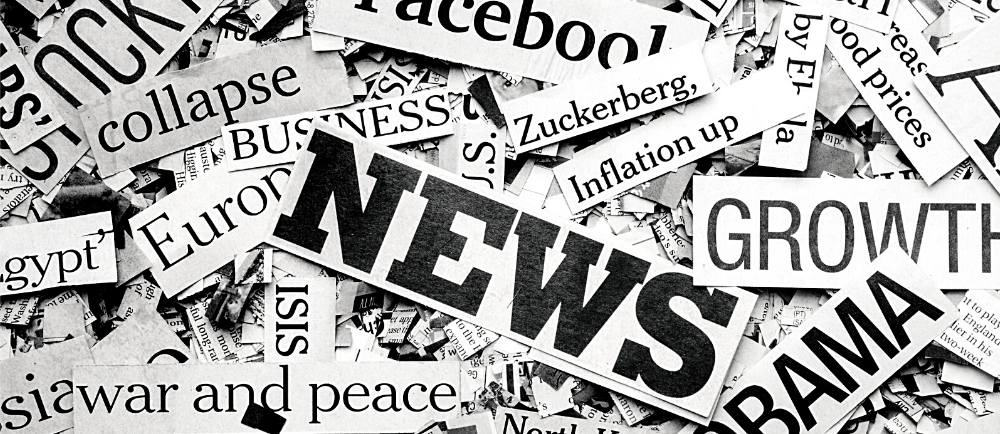Facebook Threatens to Pull News Content From Australian Feeds if Payment Laws Proceed
The Australian government has taken the mind-boggling step of trying to force Facebook to pay for news content posted to the platform - and Facebook has responded with a big fat nope.
MARKETERS


Facebook has warned it will remove all news content from its Australian platform if the federal government proceeds with legislation forcing digital platforms to pay publishers for news. The threat marks the latest escalation in a long-running dispute over how tech giants should compensate media companies for the journalism shared on their sites.
The proposal, part of the government’s News Media Bargaining Code, would require companies like Facebook and Google to negotiate payment deals with Australian news organisations. If they cannot reach an agreement, an independent arbitrator would set the price. The aim is to address what policymakers say is an imbalance between the bargaining power of large digital platforms and the media industry, which has been hit hard by declining advertising revenue.
Treasurer Josh Frydenberg has described the code as “a world-leading framework” designed to ensure fair compensation for content creators and sustain public-interest journalism. He insists the government will not be swayed by corporate pressure.
“We want to see a vibrant media landscape in Australia and we will not back down to threats,” Frydenberg said.
Facebook’s Position
In a blog post, Facebook’s Australian and New Zealand managing director, Will Easton, said the company’s options were limited if the code became law.
“Assuming this draft code becomes law, we will reluctantly stop allowing publishers and people in Australia from sharing local and international news on Facebook and Instagram,” Easton wrote.
He argued that news content made up only a small fraction of Facebook users’ feeds, claiming it provided more value to publishers through referral traffic than it gained in return. According to Facebook, in the first five months of 2020, it sent 2.3 billion clicks to Australian news websites, estimated to be worth hundreds of millions of dollars to publishers.
Easton said the company had made “significant investments” in journalism initiatives, including Facebook News in other markets, but that the Australian legislation would set a “dangerous precedent” by forcing payment for content that publishers voluntarily placed on the platform.
Industry Reaction
Australian media companies, including News Corp Australia, Nine Entertainment, and Guardian Australia, have long argued that tech giants benefit unfairly from their journalism without adequately contributing to its production costs. They welcomed the government’s proposed code, describing it as essential for the survival of local newsrooms.
Michael Miller, executive chairman of News Corp Australia, dismissed Facebook’s threat as an attempt to avoid regulation.
“These are intimidation tactics aimed at protecting their monopoly,” Miller said. “Australian journalism is worth paying for.”
Some smaller publishers, however, have expressed concern that the removal of news from Facebook could reduce their visibility and audience reach, particularly for regional outlets that rely on the platform to connect with local communities.
Google Also Pushes Back
Facebook is not alone in resisting the proposed changes. Google has also voiced strong opposition, warning it may be forced to make changes to its search services in Australia if the law is passed. The search giant recently launched a public campaign, including pop-up messages to Australian users, claiming the code would “hurt how Australians use Google Search and YouTube”.
The Australian Competition and Consumer Commission (ACCC), which developed the code, has rejected these arguments, insisting that the measures are about fairness, not punishing tech companies.
Global Implications
If enacted, Australia’s legislation could set an international precedent. Other governments are watching closely, as many countries face similar challenges balancing the power of global tech companies with the needs of domestic media industries.
Canada, France, and the UK have already explored or introduced mechanisms to force digital platforms to pay for news content. In France, for example, Google has been compelled to negotiate with publishers under European copyright laws.
Critics of Facebook’s stance say removing news entirely would risk alienating Australian users and could undermine the platform’s credibility as a source of information. However, others point out that Facebook has shown a willingness to make radical changes in response to regulatory pressures in the past.
Next Steps
The News Media Bargaining Code is expected to be introduced to parliament later this year, with the government confident it will pass. The standoff between the Morrison government and Silicon Valley is likely to intensify as the legislation moves through the political process.
If Facebook follows through on its threat, Australians could soon log into their feeds to find no news articles at all, a change that would fundamentally alter the way millions of people consume information online.
For now, both sides remain firmly entrenched, with the future of news on social media in Australia hanging in the balance.


